Worksheets & Activities
BEFORE THE SHOW:
On a later page, you will see a more extensive list of films you can recommend to your students. But listed below are some suggestions for movies to watch before seeing SISTAS, so the students will understand the historical and social context better.
Date |
Movie |
Synopsis |
| 1915 | 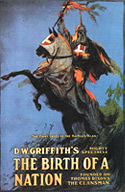 Birth of a Nation Birth of a Nation |
A silent movie, very popular at the time, now seen to be a sign of the racist times, shows the story of two families during and after the Civil War and the rise of the Ku Klux Klan. |
| 1961 | 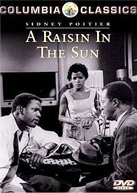 Raisin in the Sun Raisin in the Sun |
Sidney Poitier and Ruby Dee star in the film adaptation of Lorrain Hansberry’s award-winning play about a 1950’s African-American family in Chicago. |
| 1967 | 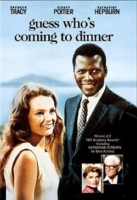 Guess Who’s Coming to Dinner? Guess Who’s Coming to Dinner? |
Sidney Poitier as the fiancé of a white woman, whose liberal parents are faced with their own hidden racism. |
| 1972 | 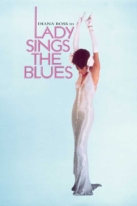 Lady Sings the Blues Lady Sings the Blues |
Diana Ross stars as Billie Holiday. |
| 1979 | 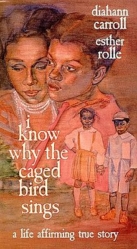 I Know Why the Caged Bird Sings I Know Why the Caged Bird Sings |
The early life of poet Maya Angelou, who goes from victim of racism and sexual abuse to independence and dignity. |
| 1988 | 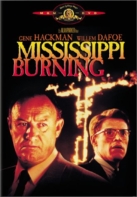 Mississippi Burining Mississippi Burining |
FBI investigation of the Ku Klux Klan in the murder of three civil rights workers in 1966. |
| 1990 | The Long Walk Home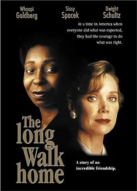 |
Whoopi Goldberg and Sissy Spacek as women involved in the 1955 bus boycott in Montgomery, Alabama. |
| 1999 | 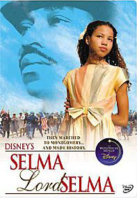 Selma Lord Selma Selma Lord Selma |
Told through the eyes of an 11-year-old African American girl, this is the story of Martin Luther King, Jr. and the Selma fight for voting rights. |
| 2001 | 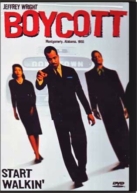 Boycott Boycott |
Jeffrey Wright stars at Dr. Martin Luther King in the story of the 1955 bus boycott in Montgomery, Alabama. |
| 2002 | 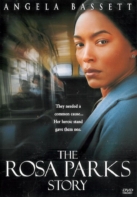 The Rosa Parks Story The Rosa Parks Story |
Angela Bassett stars as Rosa Parks. |
| 2002 | 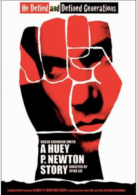 A Huey P. Newton Story A Huey P. Newton Story |
Spike Lee directs the life of the famous activist. |
| 2003 | 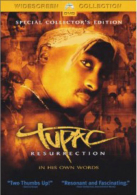 Resurrection: Tupac Shakur Resurrection: Tupac Shakur |
Documentary about the life and music of Tupac Shakur that leaves a message of hopefulness. |
| 2006 |  Dream Girls Dream Girls |
Based on the Broadway hit, this is the fictional story of a Supremes-like group and a Barry Gordy firure, who help bring African-American singers into mainstream culture. |
| 2009 | 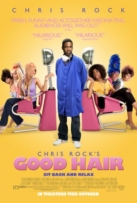 Good Hair Good Hair |
A documentary by Chris Rock about African-American women and their hair. |
| 2011 | 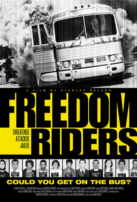 Freedom Riders Freedom Riders |
American Experience Documentary about the 1961 Freedom Riders who were trying to integrate Greyhound Bus Terminals in the South. |
AFTER THE SHOW
- Have students surf the web and find information about African-American women and their struggles and triumphs. Have them also look at African-American men. Put them into groups of four to develop a five-minute report they will give to the whole class.
- Have students identify two Oldies songs and two modern ones that they can personally relate to. Ask them to identify what is in the lyrics that speaks to them and how does it help them understand themselves or others?
- Ask students to interview parents and grandparents and ask them what life was like when they were young. How did they have fun? What were their fears? What were the obstacles they had to overcome? How did their friends handle their own lives. What role did the Church play in their upbringing? Ask the students to write a paper on their results. Afterwards, run a class discussion on what the students discovered and common themes that emerge in the whole class.
- Divide students into groups. Have each group page through magazines (you can either have some there or they do it at home), list out movies and TV show, identifying the characteristics of a ‘beautiful’ female. How close to what most women look like is that standard? What sorts of things do women and girls have to do to achieve that standard? What pressures does it bring to the average female?
- From the list of songs on the other page, have students choose five songs from various time periods and write down what they underlying assumptions about women are in the song. In other words, what does the song say women are supposed to be like, what they are supposed to do, how they are meant to react to men?
Underlying messages:
What in these messages have made it difficult or easy for you to become more empowered and self-assured?
About women |
About men |
About relationships or equality |
What barriers do you have inside and outside yourself that make equality of women and men more difficult? How can you overcome those barriers?
List Barriers Below:
Inside yourself |
Barriers outside yourself |
List means to overcome barriers. Be specific in terms of actual behaviors to change or programs to institute. |
